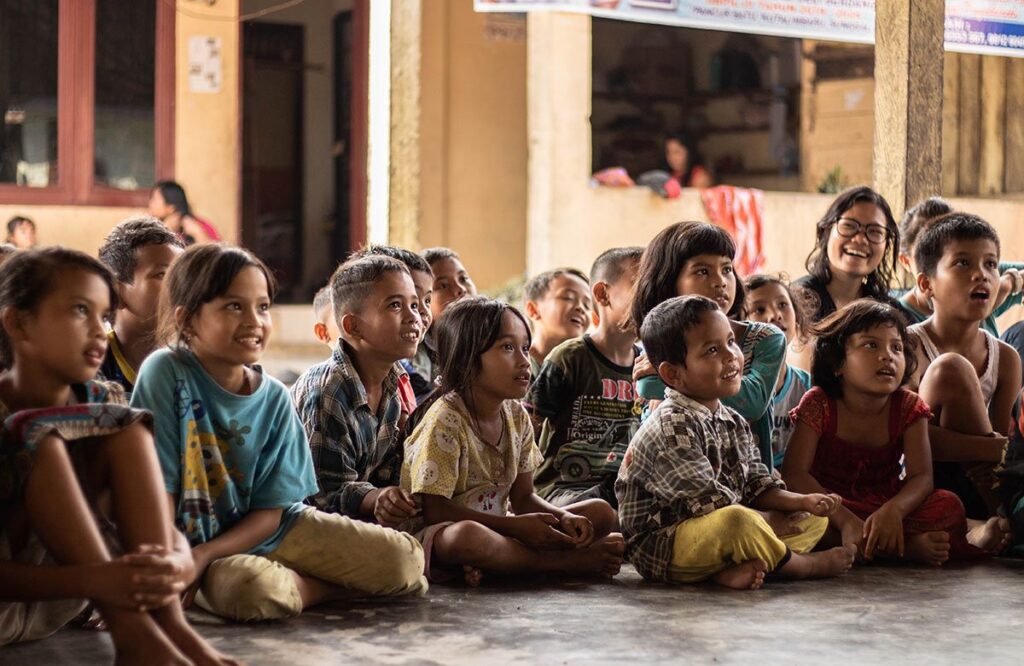
Championing the Right of Every Child to a Safe, Supportive, and Nurturing Environment



First Rights Global believes that every child has the inherent right to be protected, nurtured, and given the opportunity to thrive in a safe, supportive environment. Our commitment includes advocating for policies that defend children against all forms of exploitation, harm, and neglect while providing essential resources for their growth and well-being. Protecting children’s rights requires a comprehensive approach, addressing adoption and foster care reform, ending child marriage, and supporting early education and childcare.
Globally, children’s rights are especially vulnerable to neglect, exploitation, and abuse. In the U.S., thousands of children remain in foster care without permanent families, and nearly 20% age out of the system each year. Internationally, issues like child exploitation and marriage persist, with UNICEF reporting that one in five girls worldwide is married before 18. Additionally, many early childhood development programs remain underfunded, creating disparities that disproportionately impact low-income families.
First Rights Global envisions a society where each child’s rights to safety, education, and family are upheld through robust protections and supportive policies. Our Children’s Rights framework addresses areas such as adoption and foster care reform, anti-abuse initiatives, and child trafficking prevention. We also advocate for legislative action to end harmful practices, including child marriage and infanticide, and strive to create environments where all children receive a positive start in life.
The U.S. foster care system, currently home to over 400,000 children, faces severe challenges, with 20,000 children aging out each year without finding permanent homes. First Rights Global advocates for streamlining the adoption process, reducing legal and bureaucratic barriers, and increasing federal funding for adoption agencies. Policies similar to the Adoption and Safe Families Act of 1997, which prioritized child safety and expediting permanent placements, are essential for ensuring children’s rights to stable, loving homes. Additionally, implementing trauma-informed training for foster families and social workers can improve outcomes for children in care.
Practices like infanticide and sex-selective abortion persist globally, rooted in discriminatory beliefs that devalue certain lives. In countries like China and India, sex-selective abortion has skewed gender ratios, creating demographic imbalances. First Rights Global supports policies prohibiting sex-selective abortions and infanticide, promoting public awareness campaigns to emphasize the value of every child, and encouraging gender equality from birth. In the U.S., similar protective measures can ensure that cultural practices or personal biases do not threaten the rights of unborn children.
Child abuse and neglect affect approximately 1 in 7 children in the U.S. annually. First Rights Global advocates for enhanced funding for Child Protective Services (CPS) and mandatory training for teachers, healthcare providers, and community leaders in identifying and responding to abuse. Policies like CAPTA (Child Abuse Prevention and Treatment Act) lay a foundational framework, but greater investment and community awareness are necessary. Partnering with community organizations to offer support programs for at-risk families can also help reduce instances of neglect, creating safer environments for children.
Despite progress, child marriage remains a reality in the U.S., where children as young as 12 have been legally married in certain states. Child marriage undermines children’s rights and often leads to adverse physical, emotional, and economic outcomes. First Rights Global champions legislation that sets a minimum marriage age of 18 without exceptions, aligning with international standards and the UN Convention on the Rights of the Child. Strengthening protections against child marriage is a crucial step in ensuring children’s rights.
Early childhood is a formative period in a child’s life, and access to quality early childhood education (ECE) has been shown to improve lifelong outcomes. However, the U.S. lags behind other nations in funding and accessibility for childcare and ECE programs, disproportionately affecting low-income families. First Rights Global supports policies to expand public funding for ECE, ensuring universal access to affordable, high-quality childcare. Models from countries like Finland, where ECE is publicly funded and universally accessible, illustrate the benefits of prioritizing early childhood education. We advocate for federally funded childcare centers and increased resources for early learning programs to help close educational disparities from a young age.
Child exploitation, including trafficking, labor, and online abuse, remains a critical issue in the U.S. and globally. Over 10 million children worldwide are exploited through forced labor, while thousands face trafficking and exploitation within the U.S. First Rights Global advocates for enhanced funding for anti-trafficking task forces, expanded support for survivors, and strict enforcement of trafficking laws. Additionally, educating parents, teachers, and children about online safety is vital in combatting exploitation in the digital age. We support policies modeled after the PROTECT Our Children Act, which mandates resources for investigating and prosecuting child exploitation crimes.
Access to healthcare, including mental health services, is essential for every child’s development. In the U.S., nearly 4 million children lack health insurance, limiting their access to necessary medical care. First Rights Global advocates for policies that expand healthcare coverage for children, including those in low-income families, through Medicaid expansion and subsidized health programs. We support the Children’s Health Insurance Program (CHIP) and recommend additional funding to ensure that all children receive preventive care, vaccinations, and mental health support. Ensuring healthcare access is fundamental to a whole-life, pro-life ethic that values children’s well-being.
Children with disabilities often face barriers to inclusive education, healthcare, and social services. Nearly 7 million U.S. children are classified as having disabilities, yet many lack access to essential accommodations and resources. First Rights Global supports policies that ensure compliance with the Individuals with Disabilities Education Act (IDEA) and advocate for expanded funding for special education programs. Additionally, we support policies that provide accessible healthcare, family support services, and adaptive resources, creating an inclusive environment that respects the dignity of children with disabilities.
Maintaining family unity is critical for children’s emotional and psychological well-being. However, issues such as parental incarceration and child welfare policies often disrupt family structures, especially within marginalized communities. First Rights Global advocates for family-centered policies that reduce reliance on foster care by supporting at-risk families through counseling, economic assistance, and parental training. We also support legislative reforms to promote alternatives to incarceration for non-violent offenders who are primary caregivers, allowing children to grow up in stable, supportive family environments whenever possible.
Children’s rights are a global concern, with many children facing severe threats in conflict zones, poverty, and exploitative labor. First Rights Global aligns with international efforts, such as the UN Convention on the Rights of the Child, to advocate for comprehensive child protection standards worldwide. Our organization supports international aid programs that prioritize children’s rights, focusing on education, healthcare, and safety. By promoting these standards and supporting humanitarian efforts, we work toward a world where every child can live free from exploitation, violence, and deprivation.
Get Involved:
- Support adoption and foster care reforms to ensure every child finds a stable, loving home.
- Advocate for policies that protect children from exploitation, abuse, and neglect on local and national levels.
- Educate your community on the importance of early childhood education, healthcare access, and rights for children with disabilities.
